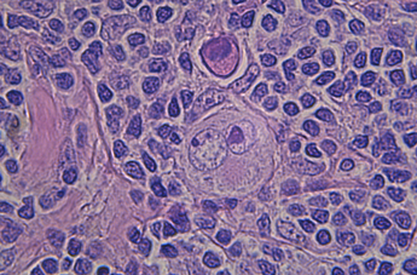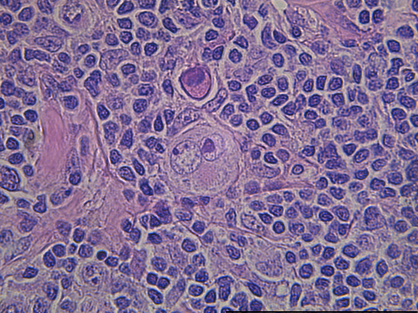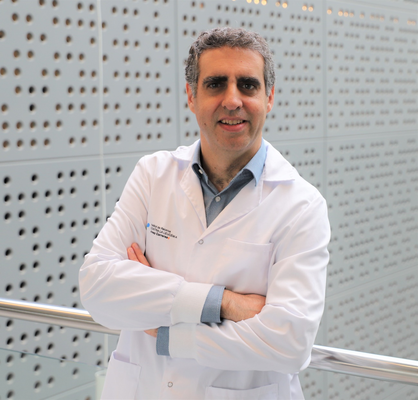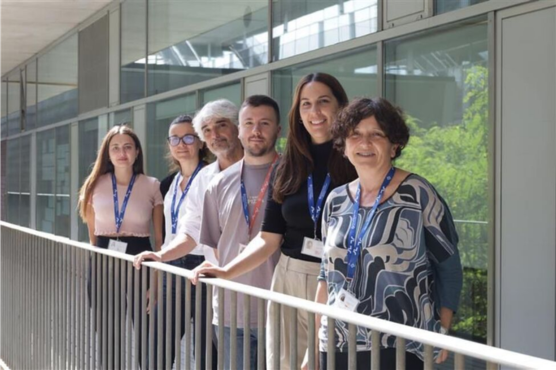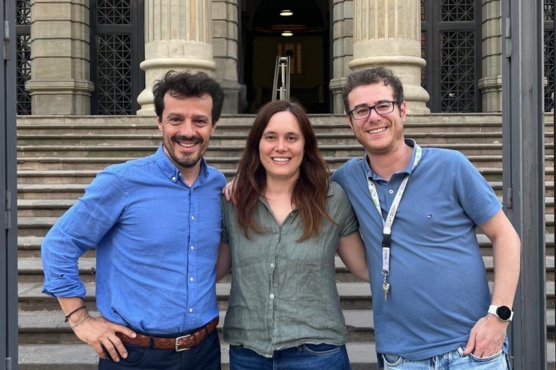► Hodgkin lymphoma is one of the most curable cancers today. More than 85% of patients recover favorably. Despite this, there are 15% of patients who do not respond to therapy and who continue to have a reduced survival.
► Dr. Manel Esteller, director of the Josep Carreras Leukemia Research Institute, published today in Blood journal, the discovery of a marker that allows predicting which patient with Hodgkin’s lymphoma will present the aggressive clinical course, and will therefore be a case of special risk.
Hodgkin lymphoma is one of the most common hematological cancers and is an example of how medical research has changed the prognosis of the disease. If a few decades ago it was a tumor with a very bad clinical evolution in almost all patients, the introduction of new drugs has made it a curable tumor in 85% of cases. However, there is 15% of Hodgkin lymphomas that do not respond to therapy and that continue to have a reduced survival. Today, an article published in the journal Blood, the official organ of expression of the American Society of Hematology (ASH), by the group of Dr. Manel Esteller, Director of the Josep Carreras Leukemia Research Institute (IJC), Professor of ICREA research and Professor of Genetics at the University of Barcelona, discovers a marker that allows predicting which patient with Hodgkin’s lymphoma will present an aggressive clinical course, and will therefore be a case of special risk.
Light microscope image of Hodgkin lymphoma, with its characteristic rounded formation called the Reed-Sternberg cell right in the center of the photograph.
“Estábamos estudiando en el laboratorio genes que regularan químicamente un tipo de material genético, el ARN, y cuya actividad estuviera perdida en cáncer, y encontramos que era el caso para el gen ALKBH3. Además, era curioso que su inactividad solo sucedía en un tipo de tumor, los linfomas, y especialmente en el linfoma de Hodgkin.” – comenta el Dr. Esteller sobre el artículo en la revista Blood y añade – “Estudiando miles de moléculas de ARN descubrimos que la ausencia de expresión del gen ALKBH3 en el linfoma de Hodgkin induce un aumento de las proteínas llamadas colágenos, que constituyen el armazón extracelular donde habitan las células tumorales. Es decir, lo que sucede en estos pacientes es que las células cancerosas cambian el microambiente que las rodea para poder estar más “cómodas” y poder proliferar mejor. Y este subgrupo de casos es el más maligno porque no encuentran en el espacio que las envuelve barreras que puedan frenar su crecimiento. Es importante conocer con anterioridad que pacientes pertenecerán a esta clase ya que son los candidatos ideales para ensayar nuevos fármacos, incluyendo medicamentos epigenéticos usados para tratar otros cánceres de la sangre como el síndrome mielodisplásico o el linfoma cutáneo.” – declara el investigador.
Article:
Esteve-Puig R, Climent F, Piñeyro D, Domingo-Domènech E, Davalos V, Encuentra M, Rea A, Espejo-Herrera N, Soler M, Lopez M, Ortiz-Barahona V, Tapia G, Navarro T, Cid J, Farré L, Villanueva A, Casanova I, Mangues R, Santamarina-Ojeda P, Fernández AF, Fraga MF, Piris MA, Kol N, Avrahami C, Moshitch-Moshkovitz S, Rechavi G, Sureda A, Esteller M. Epigenetic Loss of m1A RNA Demethylase ALKBH3 in Hodgkin Lymphoma Targets Collagen Conferring Poor Clinical Outcome. Blood, DOI: 10.1182/blood.2020005823, 2020



